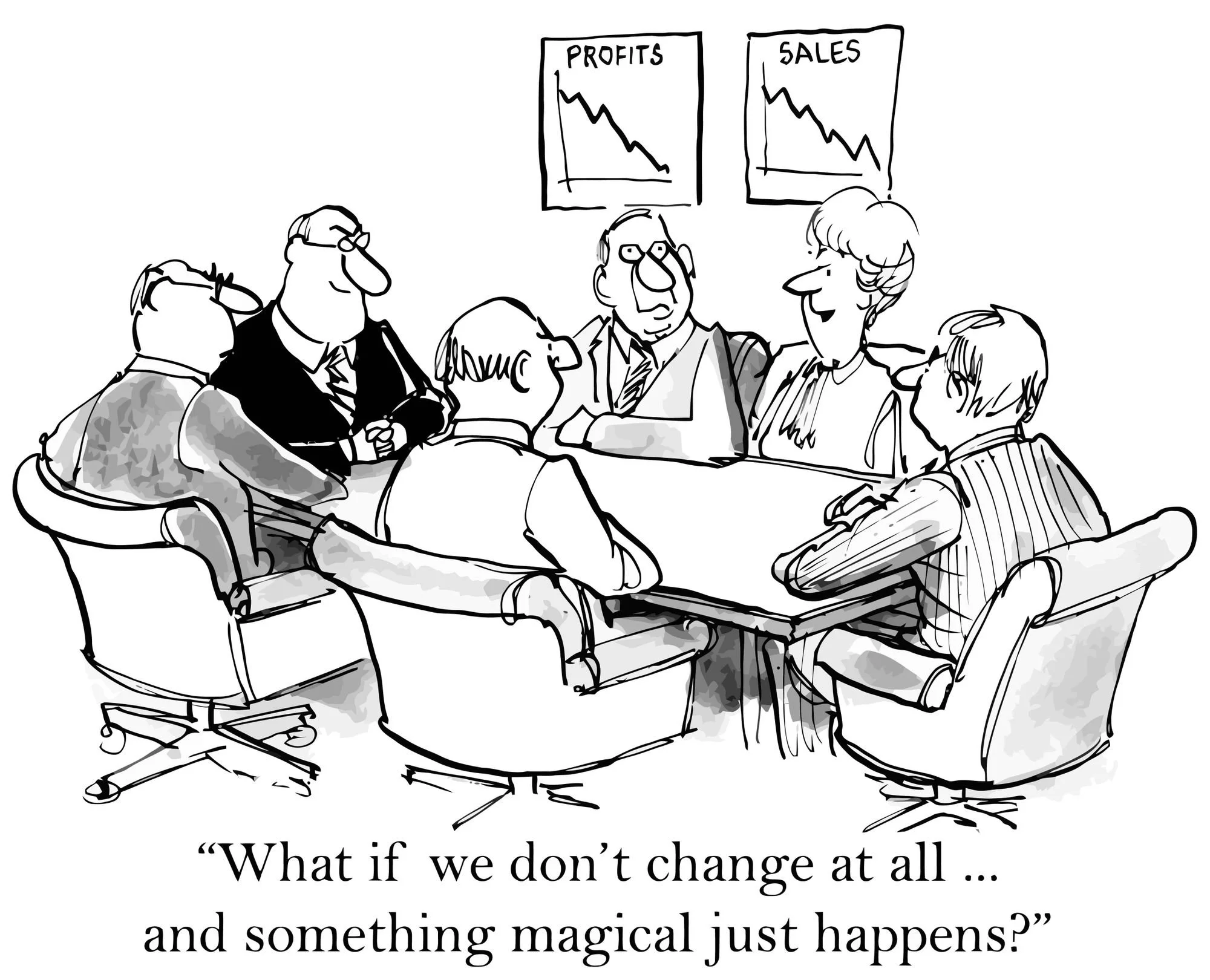Leadership Roles in Managing Organisational Change
The most essential and enduring facets of leadership is handling change and managing the impact a change will have on team dynamics, organisational structure, and management philosophies (Hannum, 2021). In today’s fast-paced changes in globalisation, communications, technology, and financial systems, businesses need to anticipate changes and adapt to manage new operations and strategies (Anh, Adamson & Dornbusch, 2004). Hence, it is imperative for a leader to get their team on board with organisational change, which could mean going against the ingrained team’s habits and perspectives.
“It is all down to the personality of the individual and there is little management can do about resistance to change” (Mullins, 2010)
Figure 1: Leadership managing change. (Source:https://blog.empuls.io/change-management-quotes/)
The statement by Mullins above is fairly debatable. While it is true that the personality of an individual affects the resistance for one to change their working habits and mindset, employees can however adapt to change with the support of good leaders (Hannum, 2021).
Research has shown that while many businesses have developed a high degree of proficiency in the "operational or structural side of change," they give little attention to the "people side of change" (Mansaray, 2019). However, when change is managed by leaders who actively anticipate change initiatives and engage their team players in pre-, present, and post-organisational change, the team will have a higher rate of operating the organisational change with success (Hannum, 2021).
VUCA Theories
Management has a role to play in cultivating agile leaders to prepare the business for success in a tumultuous business climate. With HR and talent management expertise, businesses may be able to identify and develop leaders that their organisations need at present and future (Lawrence, 2013) by using the well-recommended VUCA model as a framework to rethink leadership development methods.
Figure 2: VUCA Framework. (Source:https://www.changeandstrategy.com/leading-in-a-post-brexit-vuca-world/)
The VUCA model examines the internal and external events that are affecting present-day organisations. When planning for leadership strategies, the VUCA framework is best applied as a "skills and abilities" model (Lawrence, 2013) for a business to navigate its next course of action.
In the VUCA framework, volatility must be countered with having a vision. In volatile and unstable times, standing by a business’s vision is particularly important. Leaders who have a clear vision of their business’s five-year plan, can better navigate and make impactful decisions during economic downturns, pandemics, or emerging of new competitors.
Uncertainty can be mitigated by having an understanding, or more significantly by having the capacity to be cognizant of the situation. Leaders must be able to observe and be well aware of situations beyond their scope to necessitate collaboration and communication with their team members.
Complexity on the other hand can be counteracted by having clarity, to be able to make meaning of the chaos. Leaders who are able to swiftly and clearly tune into the details of turmoil will be able to make better and wiser business judgements.
Lastly, ambiguity can be resolved with agility, by having the capacity to manage, liaise and apply new strategies for the business to move forward.
These solutions of having vision, understanding, clarity, and agility in the VUCA framework are however not exclusive to one another. These are, however, characteristics that could highly solve and assist leaders in becoming proficient VUCA leaders.
Unilever Application of VUCA Framework
Great companies lead in their industry because they make their customers' lives easier by adding value and putting other businesses on their edge by making a difference to the ecosystem (Pandya, 2020) in which they conduct business in. Unilever sought to use the VUCA framework to achieve exactly just that.
As one of the leading consumer goods companies (Lawrence, 2013), Unilever created a 10-year plan to expand its overall business by 2020. However, this goal will come at the expense of the environment and water consumption by its customers. Unilever overcame this by applying the VUCA framework to shift sustainability as the focus of all their new business strategies to achieve the 2020 goals (Gitsham, 2012).
Figure 3: Unilever Statement on VUCA
Recommendation
Change is a constant and in certain circumstances, inevitable to business operations and its leaders. VUCA framework is one change strategy that is highly relevant in the present climate and has been proven to ease the strategies shift of businesses (Anh, Adamson & Dornbusch, 2004). It is, however, not without limitations. Focusing on VUCA can be highly time-consuming and could affect employee’s motivation and career plans.
When dealing with change, leaders must be able to take fast action, flexible to explore new strategies, and be able to have clear communication with their team at every phase of the change. Even if VUCA is not applied, the traditional method of opening to the floor for suggestions, collaborations, and ideas could bring valuable change to the company. Subordinates, on the other hand, should reciprocate their leader’s guidance as positively as they can, as it takes a team to make the dream work.
References
Ahn, M. J., Adamson, J. S. A., & Dornbusch, D. (2004). From Leaders to Leadership: Managing Change. Journal of Leadership & Organizational Studies, 10(4), 112-123. https://doi.org/10.1177/107179190401000409
Gitsham, M. (2012, February 14). The Changing Role of Global Leaders. Harvard Business Review. Retrieved from: https://hbr.org/2012/02/what-it-takes-now-to-lead-a-bu
Hannum, L. (2021, June 16). 7 Strategies for Effectively Managing Organizational Change. Beehive Strategic Communication. Retrieved from: https://beehivepr.biz/7-strategies-for-effectively-managing-organizational-change/
Lawrence, K. (2013). Developing Leaders in a VUCA Environment. UNC Executive Development. Retrieved from: https://emergingrnleader.com/wp-content/uploads/2013/02/developing-leaders-in-a-vuca-environment.pdf
Mansaray, H.E. (2019). The Role of Leadership Style in Organisational Change Management: A Literature Review. Journal of Human Resource Management. Vol. 7, No. 1, 2019, pp. 18-31. doi: 10.11648/j.jhrm.20190701.13
Pandya, B. (2020, July 13). Good companies survive in VUCA; Great ones thrive! LinkedIn. Retrieved from: https://www.linkedin.com/pulse/good-companies-survive-vuca-great-ones-thrive-bhavin-pandya/




